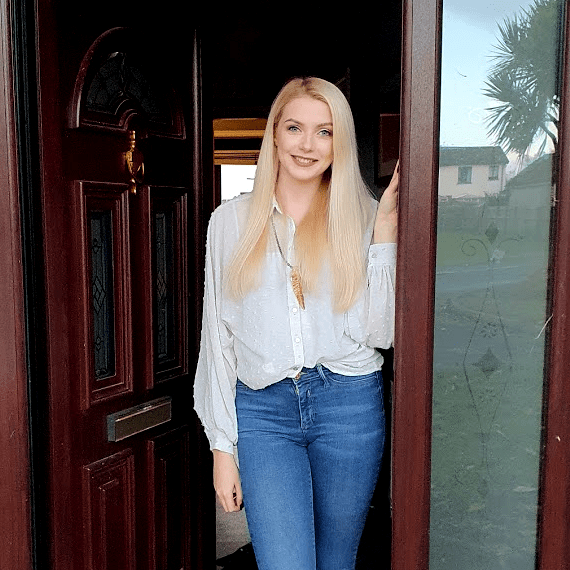A Mortgage In Principle (MIP) also called an Agreement in Principle (AIP), is a certificate or statement from a lender to say that 'in principle' they would lend you a certain amount for a mortgage. You don't necessarily have to get a Mortgage in Principle unless you're buying in Scotland, but it can really help when it comes to house hunting.
Although a MIP is not a full guarantee of your future mortgage, it can make you look like a more attractive buyer. It can give you an advantage over other buyers who may be looking at the same property. It can show sellers that your bid is realistic, credible, serious, and 'in principle' you’ll be able to afford the property. In a recent survey by Which, 62% of first-time buyers received a Mortgage in Principle (MIP), before buying their home. Interested in being one of them?
Here you can find out what a Mortgage in Principle is, how long it lasts, how to get a MIP, and the benefits of having one.
Connect with award winning FCA Authorised Mortgage and Protection Advisors, receive tailored advice and save on your mortgage.
Get in touch:
Mortgage and Protection Advice is provided by Mortgage Joy Limited (FCA: 955439)
What is a Mortgage in Principle?
Think about a Mortgage in Principle a bit like a Mortgage Promise. A lender is giving you a promise that if your income, credit rating, and circumstances remain the same, you could receive a mortgage of X amount. And like many terms in the mortgage world, it can be referred to in many different ways and acronyms. Like...
MIP - Mortgage in Principle
AIP - Approval in Principle
DIP - Decision in Principle
MP - Mortgage Promise
MP - Mortgage Principle
Don't panic, they all mean the same thing!
How long does a Mortgage in Principle last?
A Mortgage in Principle will typically last between 60 and 90 days. If it expires before you need it, you can always re-apply, but be careful about requesting too many agreements in principle as lots of credit searches could damage your all-important credit score. Make sure you're ready to start bidding and house-hunting before applying for one.
How does a Mortgage in Principle Benefit you?
Credibility, expectations, and reassurance.
Credibility: A MIP shows you can actually afford the property you’re interested in and so gives you more credibility with estate agents and sellers. This is especially useful in competitive areas where things move really quickly – and agents appreciate knowing you’re in a position to move ahead if your offer is accepted. Also, because arranging a Mortgage in Principle requires some effort on your part, this helps you appear like a committed and serious property buyer.
Expectations: One of the top mistakes you can make as a first-time buyer or 'any time home buyer' is unrealistic expectations. It sets you, your broker, and your estate agent all up for frustration and disappointment. Getting a Mortgage in Principle helps you stay realistic with house hunting because you officially know how much a lender could offer you.
Reassurance: Having a Mortgage in Principle can also remove some of the anxiety and stress around mortgage applications and house hunting. It can be reassuring to know whether a lender is prepared to lend to you before you start the mortgage application process – especially if you’re concerned about your credit record.
How do you get a Mortgage in Principle?
You can apply for a MIP either directly from a Bank (or building society) or through your Mortgage Broker. By using a Mortgage Broker to get your Mortgage in Principle you will save yourself some time. Mortgage Brokers have access to a wide market of lenders and can find you the best offer - cutting out some shopping around for you, that could potentially damage your credit score. A mortgage in principle is a free tool offered to applicants like you and can be issued out to you as quickly as 24hrs or less from some brokers, advisors, and lenders.
What information will the Bank or Broker need from me for a Mortgage in Principle?
In order to receive a Mortgage in Principle from your Bank, Broker, or Advisor you'll need the following information:
- Name, date of birth, current address, and other personal information
- Your address within the last three years
- Income-based information
- Expenditure and current credit arrangements
- The same again for your partner, if you're applying for a joint mortgage
In your Full Mortgage Application, you will be asked for further information including; bank statements and pay-slips but you shouldn’t need to give this information when applying for a Mortgage in Principle. So don't panic, you'll have a bit of time to gather up all of that information ahead of your Full Mortgage Application.
What a Mortgage in Principle isn't: The difference in a Mortgage in Principle and ‘REAL’ Mortgage Offer
A Mortgage in Principle is ‘in principle’ meaning that it’s a general mortgage estimate given your current information, which is subject to change within the 60 - 90 days. So it’s a ‘Mortgage in Theory’ almost.
- A mortgage in principle is not a mortgage offer.
If you have found a property you want to get a mortgage on and made an offer that has been accepted - you will still need to apply for a full mortgage. Your mortgage in principle at this stage is helpful as your mortgage broker or similar will already have most of your information on record. They will have to check it is still correct for your full mortgage application.
- A mortgage in principle doesn’t guarantee a mortgage offer.
A mortgage in principle doesn’t guarantee your offer as your financial situation may have changed within the estimation window. If your lenders spot something which has negatively impacted your mortgage application they may be entitled to change if you are allowed to borrow from them, the amount you can borrow, and your interest rates on the mortgage.
Can I be denied a mortgage in principle?
Not to be the bearer of bad news but more so a guiding influence - it is possible to be denied a Mortgage in Principle.
Why?
- Insufficient income
- Unstable / unreliable income
- Your deposit isn’t as big as it’s needed to be
- You have changed jobs quite often in so many years
- Your spending is deemed out-of-control
- Too much outstanding debt
- Poor credit score
- Insufficient application information
If you’re denied a Mortgage in Principle, it can harm your credit score. So it’s best to scrub up on these items before applying.
In some cases, you can be approved for a Mortgage in Principle and not a full mortgage application. This is because lenders will carry out what’s known as a ‘soft-check’ credit score for a MIP and then find out deeper information for the full application when they conduct a ‘hard check’.
When should I get a Mortgage in Principle?
CHECK YOUR CREDIT SCORE.
You can look and feel ready, and then your credit score comes along and lets you down. However, if your credit score is strong, you're on a decent steady income, have good savings that could be used a deposit (or a deposit plan, see 7 Ways Parents Can Help With a Mortgage), plus FEEL ready and excited... it's probably time to apply for a Mortgage in Principle.
If you’re serious about house-hunting, getting a Mortgage in Principle will give you that confidence boost to start moving forward!
For further information on a mortgage in principle or to speak with a broker today, contact us online here.
Related blogs can be found here.

